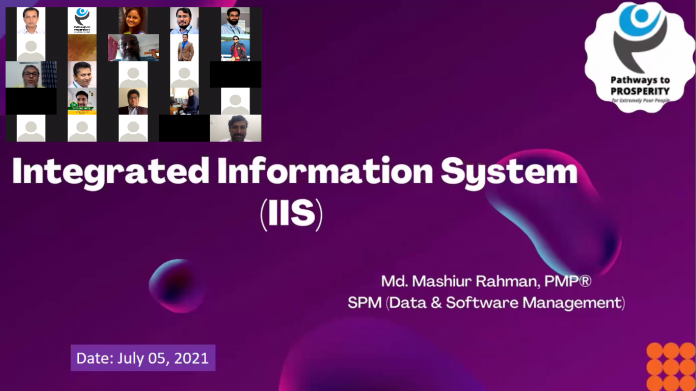The Prosperity programme is developing its Integrated Information System or IIS to monitor field activities and keep track of all information from a single platform. The IIS software will include different modules such as household profile, component activities, capacity development, Results-based Monitoring (RBM), Management Information System (MIS), Geographical Information System (GIS), dashboards and analytics, reports and mobile application for Assistant Technical Officer (ATO) and Community Nutrition and Health Promoter (CNHP).
The household profile in IIS will keep a record of the information of all the households covered by the programme. The IIS will also help monitor planned day-to-day activities of all components — livelihoods, nutrition, community mobilisation, climate resilience, disability and women empowerment leading to gender equality.
This platform will preserve information about capacity development activities and help generate MIS reports and GIS maps as necessary to undertake programme interventions.
The system will collect data from households and field offices using a mobile application and directly preserve the data in the cloud database. The Programme Implementation Unit (PIU) at PKSF will manage the data through a web-based server.
The programme has already developed the nutrition component’s module and incorporated it into the IIS software. The other proposed modules to be integrated into the software are currently under development.
Earlier this month, a demonstration session on the IIS-Nutrition component was organised on a virtual platform for selected partner organisations and officials of PIU.
During the demonstration, participants were introduced to the IIS software modules and their operations modality. The session also discussed uploading data in the software, as well as generating reports using the data.
As a next step, the programme has decided to administer a rigorous Users Acceptance Test (UAT) of the IIS-nutrition component at the field level. Relevant field-level PO staff will be provided with necessary training before the UAT. In addition, a detailed guideline will be prepared to ensure smooth training to conduct the field test of the IIS-nutrition component as well as all other components of the programme.


